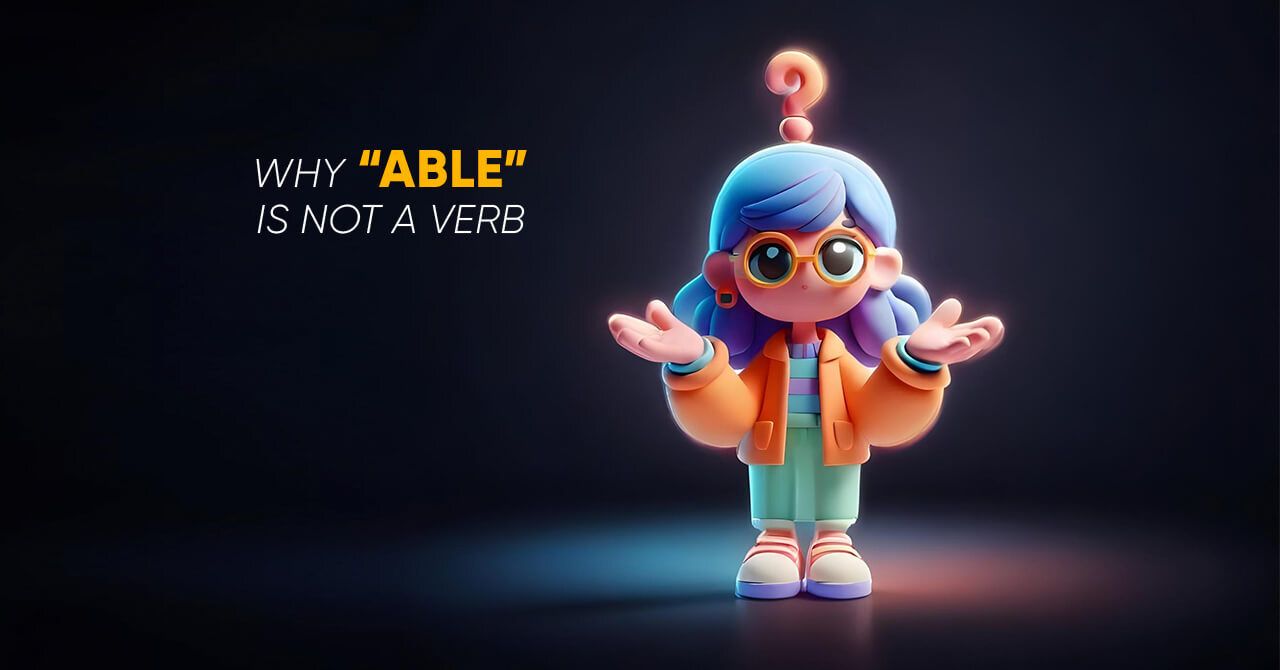
“Able”: Is It a Verb or an Adjective?
More often, “able” is an adjective. This means it is a word that describes a noun or pronoun. It tells us something about the person, place, or thing. When we say someone is “able,” we mean they have the capacity, skill, or means to do something.
For example:
She is able to cook.
He is able to teach.
In these examples, “able” describes “she” and “he.” It tells us what they can do.
Why “able” isn’t usually a verb
A verb is a doing word, a word that expresses an action or a state of being. Verbs like “teach” and “write” show us what someone is doing. While “able” might seem like a verb, it actually does not express action. Interesting right?
The tricky part
The confusion often comes from phrases like “to be able to.” This may sound like “able” is part of the verb phrase, but it’s not. The real verb here is “be.” How so? You may ask. We will talk about it another day. “Able” is still an adjective describing the subject’s ability.
The flexibility of “able”
While “able” is primarily an adjective, it can be used in sentence structures. For example:
- In noun phrases: “an able tutor,” “a highly able student.”
- In comparative and superlative forms: “more able,” “most able.”
Common mistakes with “able”
One common mistake is using “able” incorrectly with certain verbs. For instance, it’s incorrect to say, “I am able to can read.” The correct usage would be “I am able to read.”
“Able” as a verb
While “able” is commonly used as an adjective, it can also be used as a verb in formal English. When used as a verb, “able” means to make someone or something capable of doing something. For example:
The teacher abled her students to read on their own.
The use of the internet has abled us to communicate all across the world.
In these sentences, “abled” means the teacher and the internet made it possible for something to happen.
It is, however, important to note that this usage of “able” is archaic and less common in modern English. We now usually use the verb “enabled” instead.
Conclusion
You need to be able to understand the distinct differences of “able” as an adjective so that you can use it effectively in your writing. Remember to consider the context in which it is used and avoid mistakes.
A passionate educator who enjoys helping others learn, solve problems, and achieve their goals.

